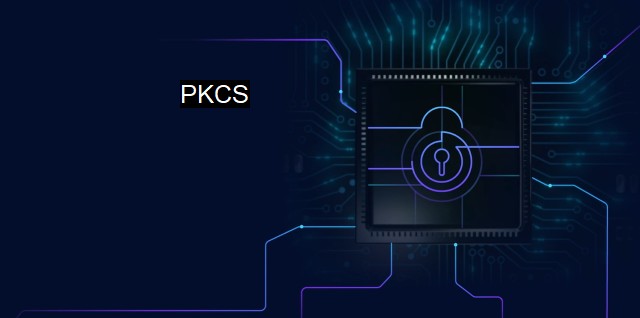What is PKCS?
The Power of PKCS Standards in Cybersecurity and Antivirus Applications
Public Key Cryptography Standards (PKCS) are a group of specifications related to public-key cryptography, developed by the private firm RSA Laboratories in collaboration with secure systems developers worldwide. They provide a foundation for secure communications within a network, which is its primary use. Its role in cybersecurity and antivirus is crucial as it acts as a defense against various digital threats and attacks, and it plays a significant part in secure internet browsing.Cryptographic systems like PKCS find usage in various digital infrastructures to protect data. These infrastructures include email, messaging apps, video conferences, websites, and advanced software applications. the PKCS standards establish a hardened coding to ensure security and secure information exchange in the digital space. This standard encompasses encryption techniques, certificate formats, and algorithms to ensure smooth transactions without any external threats. PKCS are also used across internal and external networks of businesses to shield financial transactions and confidential data.
PKCS matters because it provides different levels of safety nets against potential cyber-attacks. Firstly, the encryption side of PKCS forms a secure path for information conveyed between two parties. PKCS facilitates a cryptographic handshake where both sender and receiver agree upon a common secret key to encrypt and decrypt messages. This shields the information from eavesdroppers.
PKCS plays a vital role in digital signatures. The sender signs a document using their private key, whereas receivers use the sender's public key to check the document, verifying it is indeed sent by the alleged sender and not tampered with during transmission. Thus, it helps set an established method for asymmetric key distribution.
There are different types of PKCS, each serving its purpose in the realm of data security. PKCS#1 deals with the RSA coding standards, while PKCS#7 presents the syntax for data that has an optional digital signature or digitized encryption. Another example, PKCS#10, describes the syntax for Certification Request Standard employed during the request phase of obtaining a digital certificate.
Applications in antivirus developments also exist where PKCS plays a significant role. Some antiviruses use PKCS standards to secure their connection whenever there's a system update or virus definition update. Many web filters, like antivirus products, employ certificate signing requests adhering to PKCS#10 for blocklisting, safe listing, and category-based filtering.
The role of PKCS extends past merely protecting against digital threats—it also provides a means of validating the identity in digital transactions. financial institutions sanctions processes where the identities are certified through certificates following the PKCS standards before transaction approval.
The world of cybersecurity continues to evolve, the institution of standards like PKCS solidifies the foundation, providing a secure transactional space while anticipating future needs. Developers around the globe continue to strengthen these standards against more complex threats to maintain integrity and confidentiality.
Indeed, PKCS plays an undeniable role in cybersecurity and in antivirus strategies. Its ability to encrypt data, safeguards digital transactions, validates identities, protect emails, shields software updates, and provide a protective shield to the internet architecture, making it a paramount security measure. As technology continues to evolve, the need for robust and secure cryptographic standards like PKCS will only increase.

PKCS FAQs
What is PKCS#11?
PKCS#11 is a cryptographic API standard that provides a platform-independent API for interacting with various cryptographic devices and services. It's commonly used in cybersecurity to manage private keys, certificates, and other important security tokens.What is the role of PKCS in antivirus software?
PKCS#7 is commonly used in antivirus software to provide digital signatures and authentication for software updates and patches. This ensures that software updates come from a trusted source and have not been tampered with.What are the different types of PKCS standards?
There are several PKCS standards, including PKCS#1, PKCS#7, PKCS#8, PKCS#10, PKCS#11, PKCS#12, and others. Each standard defines a set of cryptographic algorithms, data structures, and protocols for different use cases, such as key management, digital signatures, encryption, and more.What are the benefits of using PKCS standards in cybersecurity?
PKCS standards provide a standardized way of implementing cryptographic operations and protocols, which improves interoperability between different systems and devices. This can help ensure that sensitive data is protected at all times, and that communication between different components of a cybersecurity infrastructure is secure and reliable. Additionally, using PKCS standards can help reduce the risk of vulnerabilities and exploits by providing a tested and trusted framework for implementing cryptographic operations.Related Topics
Encryption Digital Signatures Asymmetric Key Cryptography Secure Communications Certificate Authorities
| | A | | | B | | | C | | | D | | | E | | | F | | | G | | | H | | | I | | | J | | | K | | | L | | | M | |
| | N | | | O | | | P | | | Q | | | R | | | S | | | T | | | U | | | V | | | W | | | X | | | Y | | | Z | |
| | 1 | | | 2 | | | 3 | | | 4 | | | 7 | | | 8 | | |||||||